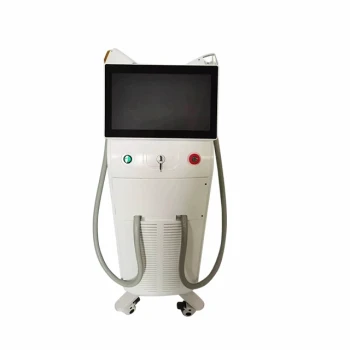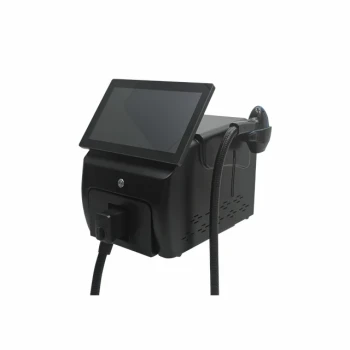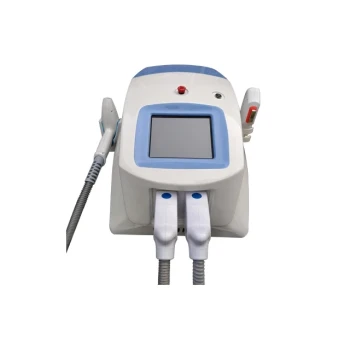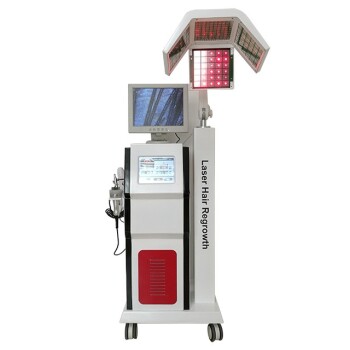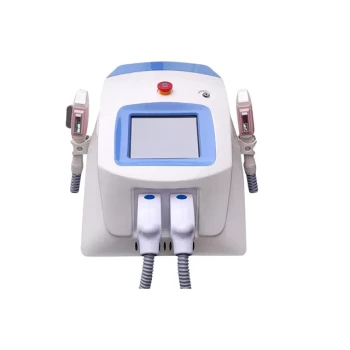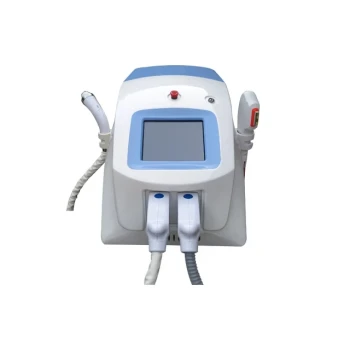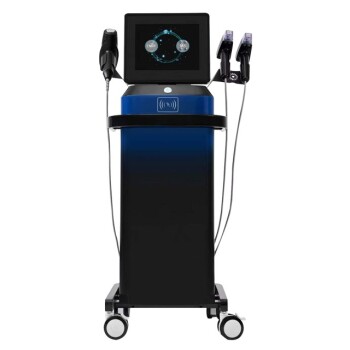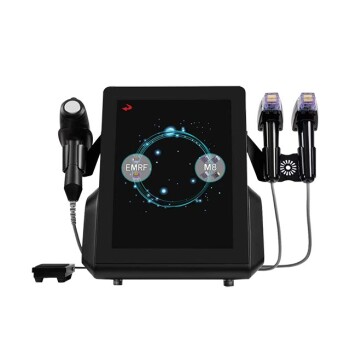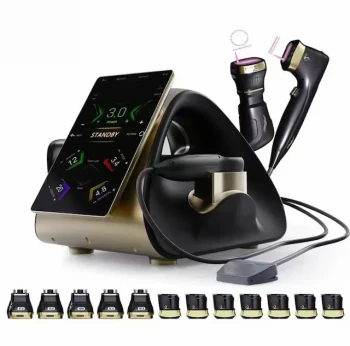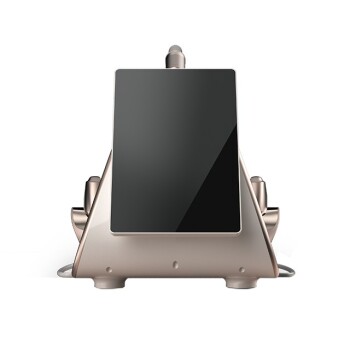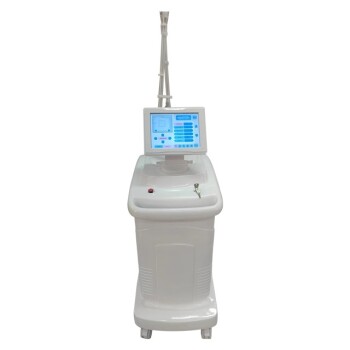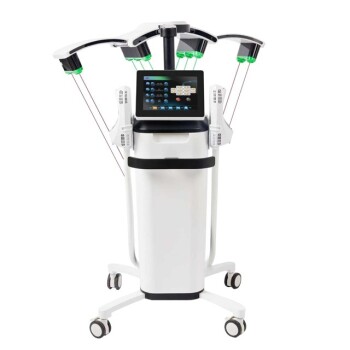When comparing IPL and diode laser for hair removal, the diode laser is generally considered the more effective, specialized technology. Its single, concentrated wavelength of light is optimized to precisely target and destroy hair follicles, leading to faster and more permanent results. While IPL (Intense Pulsed Light) can also reduce hair, it uses a broad spectrum of scattered light, making it a less focused and often less efficient tool for this specific purpose.
The fundamental difference is not about one being universally "good" and the other "bad," but about precision. A diode laser is a specialist tool engineered for one job—destroying hair follicles. IPL is a generalist tool that can address hair, but also other skin concerns, without mastering any single one.

The Core Difference: Wavelength and Precision
To understand which is better for you, you must first understand how each technology works. The key distinction lies in the type of light they use.
How Diode Lasers Work: The Single Wavelength Advantage
A diode laser emits a single, precise wavelength of light (typically 808nm or 810nm). This specific wavelength is highly absorbed by the melanin (pigment) in the hair follicle.
This focused energy travels directly down the hair shaft to the root, where it converts to heat. This heat damages or destroys the follicle, inhibiting future hair growth. Think of it as a sniper rifle, delivering a precise, powerful shot directly to the target.
How IPL Works: The Broad Spectrum Approach
IPL is not a laser. It uses a high-powered flashlamp, much like a camera flash, to produce a broad spectrum of multiple light wavelengths.
Filters are used to narrow this spectrum to target melanin, but the light remains scattered and less concentrated than a laser. This diffused energy is less efficient at reaching and destroying the hair follicle. Think of it as a shotgun blast, scattering energy over a wider area with less impact on any single point.
Comparing Key Performance Metrics
While both can reduce hair, their performance differs significantly across several key areas.
Effectiveness and Permanence
Due to its precision, the diode laser is superior for achieving permanent hair reduction. Its focused energy is more effective at destroying the follicle, not just damaging it.
This typically means you will need fewer sessions with a diode laser to achieve your desired results compared to IPL. While IPL can be effective, its results can be less consistent, often requiring more treatments and ongoing maintenance.
Skin and Hair Type Suitability
This is a critical factor. Both technologies work by targeting melanin, the pigment in dark hair. This means neither technology is effective on very light, red, or grey hair.
For a diode laser, the ideal candidate has light skin and dark hair, as this creates the most contrast for the laser to target. However, advanced diode lasers with longer pulse durations are often safe and effective for darker skin tones (Fitzpatrick types IV-VI), but this requires a highly skilled operator.
IPL works best on very fair skin with dark hair (Fitzpatrick types I-II). It carries a significantly higher risk of burns and pigmentation issues on darker skin, as the scattered light can be unintentionally absorbed by the melanin in the skin itself.
Treatment Speed and Comfort
Diode laser devices often have a higher repetition rate and can treat larger areas more quickly. A full back or legs can be treated much faster with a modern diode system.
In terms of comfort, both treatments can cause a sensation often described as a "rubber band snap." However, most professional diode lasers have an integrated cooling tip, which continuously cools the skin's surface to significantly reduce pain and protect the epidermis.
Understanding the Trade-offs and Risks
Choosing a treatment is not just about effectiveness; it's about understanding the potential downsides and costs.
The Risk on Darker Skin Tones
The primary risk for both technologies is on darker skin. Because the skin has more melanin, it competes with the hair follicle for the light's energy.
This competition can cause the skin to overheat, leading to burns, blistering, or changes in skin color (hypopigmentation or hyperpigmentation). This risk is substantially higher with IPL due to its uncontrolled, scattered light.
Cost and Versatility
IPL systems are often less expensive for a clinic to purchase, which can sometimes translate into a lower per-session cost for the client.
Furthermore, IPL is more versatile. The same machine can be used to treat other concerns like sun spots, broken capillaries, and general redness. A diode laser for hair removal is a specialist tool built for that singular purpose.
The Myth of "At-Home" Equivalence
Nearly all at-home hair removal devices use IPL, not laser technology. These devices operate at a much lower energy level than professional machines for safety reasons. They can produce some temporary hair reduction but are not powerful enough to cause permanent follicle destruction and are not comparable to professional-grade treatments.
Making the Right Choice for Your Goal
Your choice should be based on a clear-eyed assessment of your goals, skin type, and budget.
- If your primary focus is maximum effectiveness and permanent hair reduction: The precision and power of a professional diode laser are unmatched.
- If you have very fair skin and dark hair and are looking for a potentially more budget-friendly option: IPL administered by a skilled professional can be an effective solution, though it may require more sessions.
- If you have darker skin (Fitzpatrick IV-VI): You must seek a practitioner who uses a diode laser specifically designed and proven to be safe for darker skin tones to minimize risk.
- If you are interested in treating other skin concerns like sun spots in addition to hair reduction: The versatility of IPL might be appealing, but understand it is a compromise for hair removal efficacy.
Ultimately, understanding the technology's core mechanism—precision versus versatility—is the key to selecting the treatment that will deliver the safest and most effective results for you.
Summary Table:
| Feature | Diode Laser | IPL |
|---|---|---|
| Technology | Single, precise wavelength (e.g., 808nm) | Broad spectrum of scattered light |
| Best For | Permanent hair reduction on light to dark skin (with skilled operator) | Fair skin (Fitzpatrick I-II) with dark hair; versatile for other skin concerns |
| Effectiveness | High precision, fewer sessions needed | Less focused, more sessions required |
| Risks on Dark Skin | Lower risk with advanced devices | Higher risk of burns/pigmentation |
| Treatment Speed | Faster, with integrated cooling for comfort | Slower, less concentrated energy |
Ready to offer your clients superior, permanent hair removal results?
BELIS specializes in professional medical aesthetic equipment, including high-precision diode lasers designed for safety and efficacy across diverse skin types. Enhance your clinic's service offerings with technology trusted by medical aesthetics clinics and premium beauty salons worldwide.
Contact us today to explore how our diode laser solutions can drive your business growth and client satisfaction.
Visual Guide
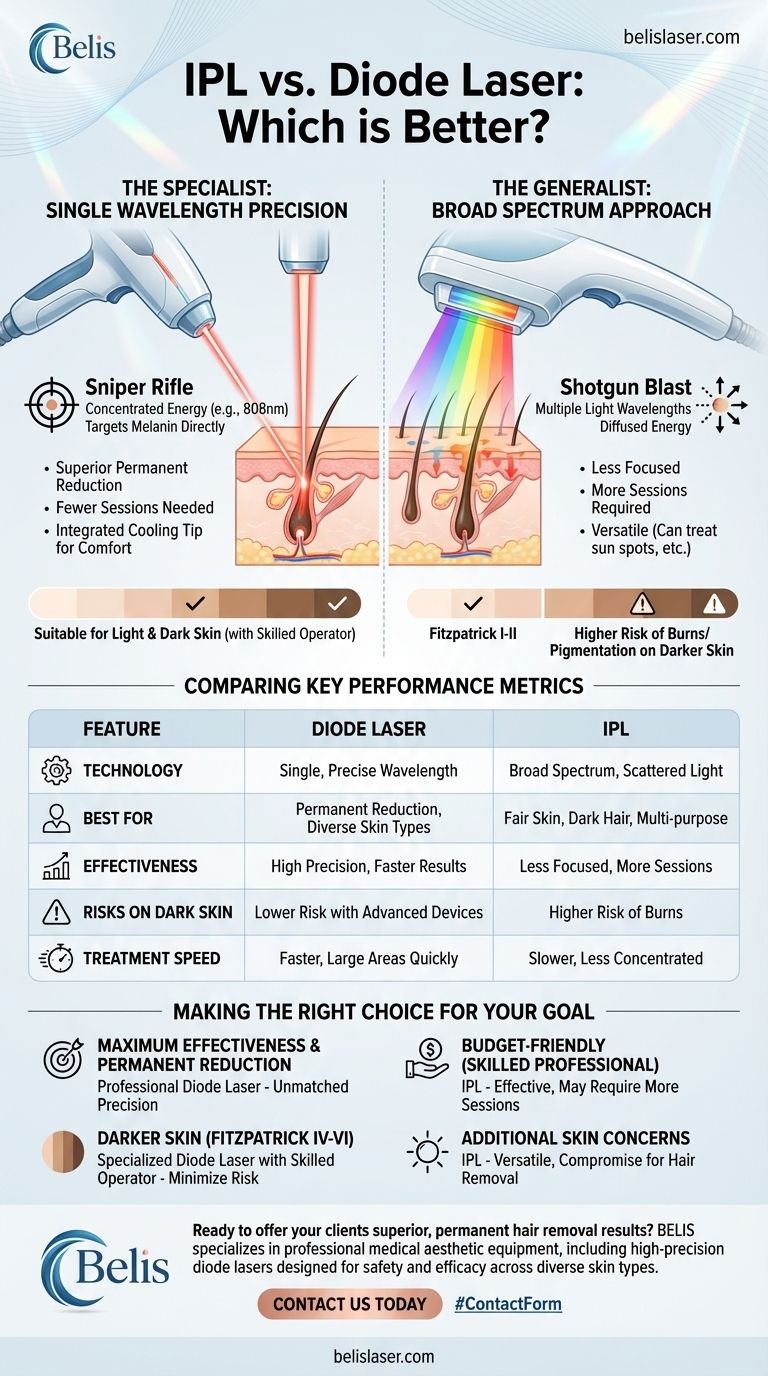
Related Products
- Diode Laser SHR Trilaser Hair Removal Machine for Clinic Use
- Diode Tri Laser Hair Removal Machine for Clinic Use
- Trilaser Diode Hair Removal Machine for Beauty Clinic Use
- Clinic Diode Laser Hair Removal Machine with SHR and Trilaser Technology
- Clinic Use IPL and SHR Hair Removal Machine with Nd Yag Laser Tattoo Removal
People Also Ask
- What are the disadvantages of diode laser hair removal? Key Limitations & Safety Risks Explained
- Which hair removal method is considered better, the diode laser or IPL? Choosing the Superior Professional Technology
- Does diode laser remove hair permanently? Understanding Permanent Hair Reduction
- Can diode laser permanently remove hair? Achieve Lasting Hair Reduction with Professional Treatment
- What skin type is diode laser for? Safe Hair Removal for Light to Dark Skin

